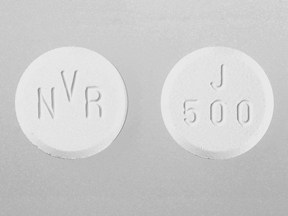Exjade and Alcohol/Food Interactions
There are 2 alcohol/food/lifestyle interactions with Exjade (deferasirox).
Caffeine Deferasirox
Moderate Drug Interaction
MONITOR: Coadministration with deferasirox may increase the plasma concentrations of drugs that are substrates of the CYP450 1A2 isoenzyme. The mechanism is decreased clearance due to inhibition of CYP450 1A2 activity by deferasirox. In a study of healthy volunteers, administration of the CYP450 1A2 substrate theophylline (120 mg single dose) in combination with deferasirox (repeated dosing of 30 mg/kg/day) resulted in an approximate doubling of theophylline systemic exposure (AUC) and elimination half-life.
MANAGEMENT: Caution is advised if deferasirox must be used concurrently with medications that undergo metabolism by CYP450 1A2, particularly those with a narrow therapeutic range. Dosage adjustments as well as clinical and laboratory monitoring may be appropriate for some drugs whenever deferasirox is added to or withdrawn from therapy.
References (1)
- (2005) "Product Information. Exjade (deferasirox)." Novartis Pharmaceuticals
Deferasirox Food/Lifestyle
Moderate Food Interaction
ADJUST DOSING INTERVAL: According to product labeling, the bioavailability of deferasirox was variably increased when taken with a meal.
MANAGEMENT: To ensure consistent plasma drug levels, deferasirox should be taken on an empty stomach 30 minutes before eating preferably at the same time everyday.
References (1)
- (2005) "Product Information. Exjade (deferasirox)." Novartis Pharmaceuticals
Switch to consumer interaction data
Exjade drug interactions
There are 603 drug interactions with Exjade (deferasirox).
Exjade disease interactions
There are 6 disease interactions with Exjade (deferasirox) which include:
- bone marrow suppression
- dermatologic toxicities
- hepatic impairment
- renal dysfunction
- auditory and ocular abnormalities
- GI complication
More about Exjade (deferasirox)
- Exjade consumer information
- Check interactions
- Compare alternatives
- Pricing & coupons
- Reviews (1)
- Drug images
- Side effects
- Dosage information
- During pregnancy
- Generic availability
- FDA approval history
- Drug class: chelating agents
- Breastfeeding
- En español
Related treatment guides
Drug Interaction Classification
| Highly clinically significant. Avoid combinations; the risk of the interaction outweighs the benefit. | |
| Moderately clinically significant. Usually avoid combinations; use it only under special circumstances. | |
| Minimally clinically significant. Minimize risk; assess risk and consider an alternative drug, take steps to circumvent the interaction risk and/or institute a monitoring plan. | |
| No interaction information available. |
See also:
Further information
Always consult your healthcare provider to ensure the information displayed on this page applies to your personal circumstances.


